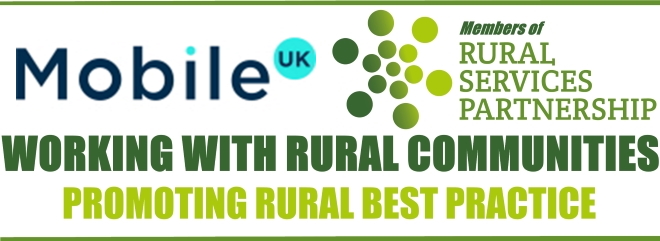T: 01822 851370 E: admin@sparse.gov.uk
TOP NEWS:
RSN Voices Serious Concerns Over ‘Fairness’ Of Settlement
Read here...
24.07.2025
2G Switch-Off: Are You Ready for the UK's Network Evolution?
 Authored by Mobile UK
Authored by Mobile UKThe UK's mobile networks are undergoing a significant evolution, moving towards faster, more efficient 4G and 5G technologies. As part of this vital upgrade, older 2G networks will be switched off. While there's a commitment to switch off 2G by 2033, some operators are already beginning to publish their phase-out schedules, and it's crucial for organisations and individuals alike to be prepared.
This transition isn't just about consumer mobile phones; many essential services, such as telecare systems, parking payment machines, and various monitoring devices relied upon by local authorities and businesses, currently utilise 2G technology.
Why the Change?
The move away from 2G is driven by the need to modernise our mobile infrastructure. 2G and 3G networks are older, less efficient, and consume more power than their 4G and 5G counterparts. By retiring these legacy networks, mobile operators can reallocate valuable radio frequencies, allowing for expanded coverage, faster speeds, and more reliable services across the UK. This investment in next-generation networks is vital for a digitally connected future.
What are the Schedules?
All UK mobile operators have confirmed with the Government their intention to switch off 2G and 3G services by 2033 at the latest. However, specific timelines for 2G will vary by operator, with some planning earlier actions.
- 3G Switch-Off: Most operators (VodafoneThree and EE) have completed or will complete their 3G switch-off by the end of 2024. Virgin Media O2 plans to switch off its 3G network by the end of 2025.
- 2G Switch-Off: While the ultimate deadline is 2033, some operators are already initiating changes. For instance, Virgin Media O2 plans to withdraw access to its 2G and 3G networks from inbound roaming services from 1 October 2025. This means that devices using international roaming SIMs on their network will be impacted from this date.
Operators will communicate specific timelines and impacts to their customers.
Are You Ready? Essential Actions for RSN Members and Beyond
The smooth transition away from 2G requires proactive engagement from all users, especially those managing critical services. For members within the Rural Services Network (RSN), and indeed for any organisation, we urge you to take the following essential steps:
-
Conduct a Comprehensive Audit of Your Suppliers: Identify any services that currently depend on 2G technology. This is paramount for understanding your exposure to the upcoming changes. Think broadly across all your operations, from smart meters and utility monitoring to payment terminals and security systems.
-
Pay Close Attention to International Roaming SIMs: A critical area of focus is on services utilising international roaming SIM cards. As highlighted by O2's upcoming changes, these services could be significantly affected. Ensure you ascertain whether any of your suppliers are using such SIMs.
-
Contact Mobile UK if Using International Roaming SIMs: If your audit reveals the use of international roaming SIMs for any 2G-dependent services, it is vital that you contact Mobile UK directly. This will ensure you receive timely updates regarding the network operators' specific switch-off plans and can access guidance on maintaining connectivity for your services. We are here to support you through this transition.
Prompt action is essential to guarantee a smooth transition and prevent any disruption to crucial services. The move to 4G and 5G will bring significant benefits in terms of speed, reliability, and capacity, but it requires careful planning and preparation from everyone.
For any support or further information, please contact Mobile UK.
For any support or further information, please contact Mobile UK.



